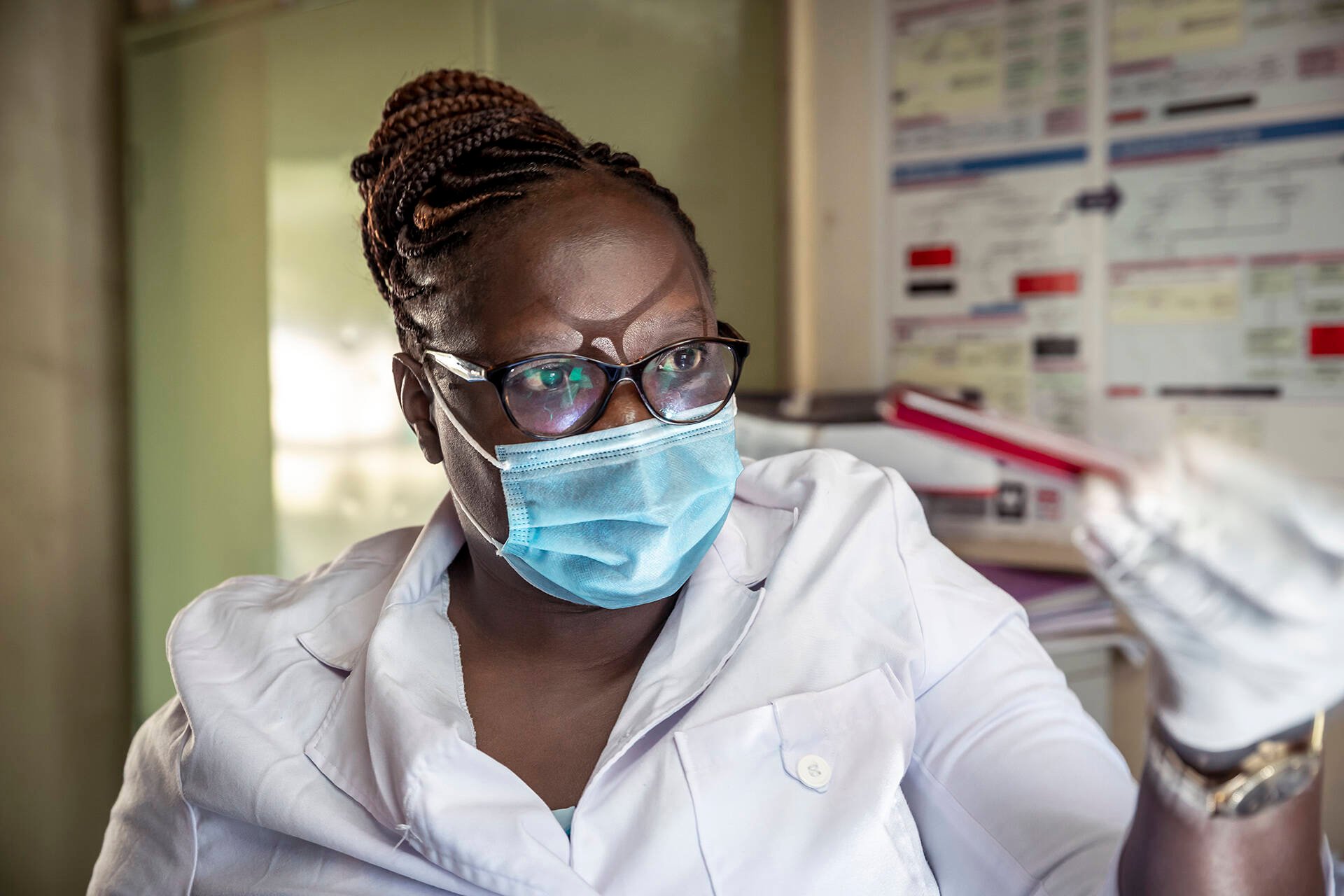
Community
engagement,
a vital concern in
clinical research
Nuraan Fakier, Erika Gaspari and Ana Lúcia Weinberg

Community engagement in clinical research is a dynamic and interactive relationship between researchers, policy-makers and the community. EDCTP encourages this engagement; the projects it funds are often oriented towards building interactive engagement with end-users of research results.
Unfortunately, key populations that can most benefit from successful interventions, are often excluded from the clinical product development. EDCTP’s focus on these key populations requires good participatory practices for engagement from study inception right through to results dissemination.
Therefore, EDCTP aims to ensure that effective community engagement is an integral part of the research and capacity development initiatives it funds. This should result in increased awareness and active involvement of community stakeholders in research activities and decision-making. Collaborative partnering with stakeholders is key to building transparent, meaningful, mutually beneficial, and sustained relationships. Respectful relationships addressing the interests of communities underpin scientifically rigorous and ethical trials. This will contribute to reliable and valid data that can inform prevention and treatment strategies for emerging pathogens[1] and poverty-related diseases.
scroll down
Through its various funding mechanisms, EDCTP has invested in a range of community engagement activities. The international collaborative clinical research projects usually comprise an element of community engagement such as through stakeholder meetings with community representatives to ensure their active involvement throughout the study. Feedback events and other engagement activities are also planned. Many of the clinical research sites where EDCTP-funded trials take place have longstanding engagement with local stakeholders through Community Advisory Boards.
An example of such a collaborative approach between researchers and the community is the EMPIRICAL study: ‘Empirical treatment against cytomegalovirus and tuberculosis in severe pneumonia in HIV-infected infants: a randomised controlled clinical trial’. Particular attention is paid to ensuring that participants understand the purpose and procedures of the clinical trial, as well as involving peer counsellors in post-test counselling to provide support to caregivers regarding their HIV diagnosis and to explain the voluntary nature of research studies.
Collaboration with a Community Advisory Board at each clinical research site is integrated in the study approach, including establishing a local board if one is not already available. The Community Advisory Boards will contribute to increase awareness and develop trust between the research teams and the HIV community. They will aim to dispel any myths and rumours that may have arisen due to a lack of information or an understanding according to local beliefs. To do so, the boards will include key representatives from the community, such as volunteers from activist and patient groups and representatives from (non-)governmental organisations that best represent the infants and families affected by the transmission of HIV-infection. Moreover, local authorities such as traditional chiefs and city representatives will be informed about the trial.
The Community Advisory Boards will be convened before submission of the study protocol to the local Ethics Committee. They will provide guidance and their perspective on the protocol, including what must be addressed during post-test counselling. Moreover, they will provide feedback on the informed consent forms and the study implementation, and assist in the dissemination of research results. Biannual meetings will be held with the boards to ensure a dialogue throughout the trial, to identify, discuss and resolve issues arising. At the end of the study, participants and families will be informed that the trial will be closing. When the trial results are available, an information meeting will take place involving every trial participant and their care givers, the Community Advisory Board and local authorities.
Community engagement in
clinical research
EDCTP was a key partner in the TRUST project funded by the European Union under Horizon 2020 from 2016 to 2018. The project aimed to build an international governance structure involving partners in China, Europe, India, Russia and sub-Saharan Africa. TRUST partners were particularly interested in how vulnerable communities in low-and middle-income countries can become equitably engaged in collaborative research ventures.
According to the TRUST approach, effective community engagement can ensure that all voices are heard and opinions represented in equal measure. To be effective, community engagement in international research requires the development of partnerships with ‘local’ stakeholders (e.g., advocacy groups), involving them in assessing local challenges and research priorities, determining the value of research, planning, conducting and overseeing the research, and integrating the results with local needs where relevant. In a sense, it requires members of the community to become part of the research team and vice versa to create bespoke working environments before, during and after the research.
Community engagement for equity
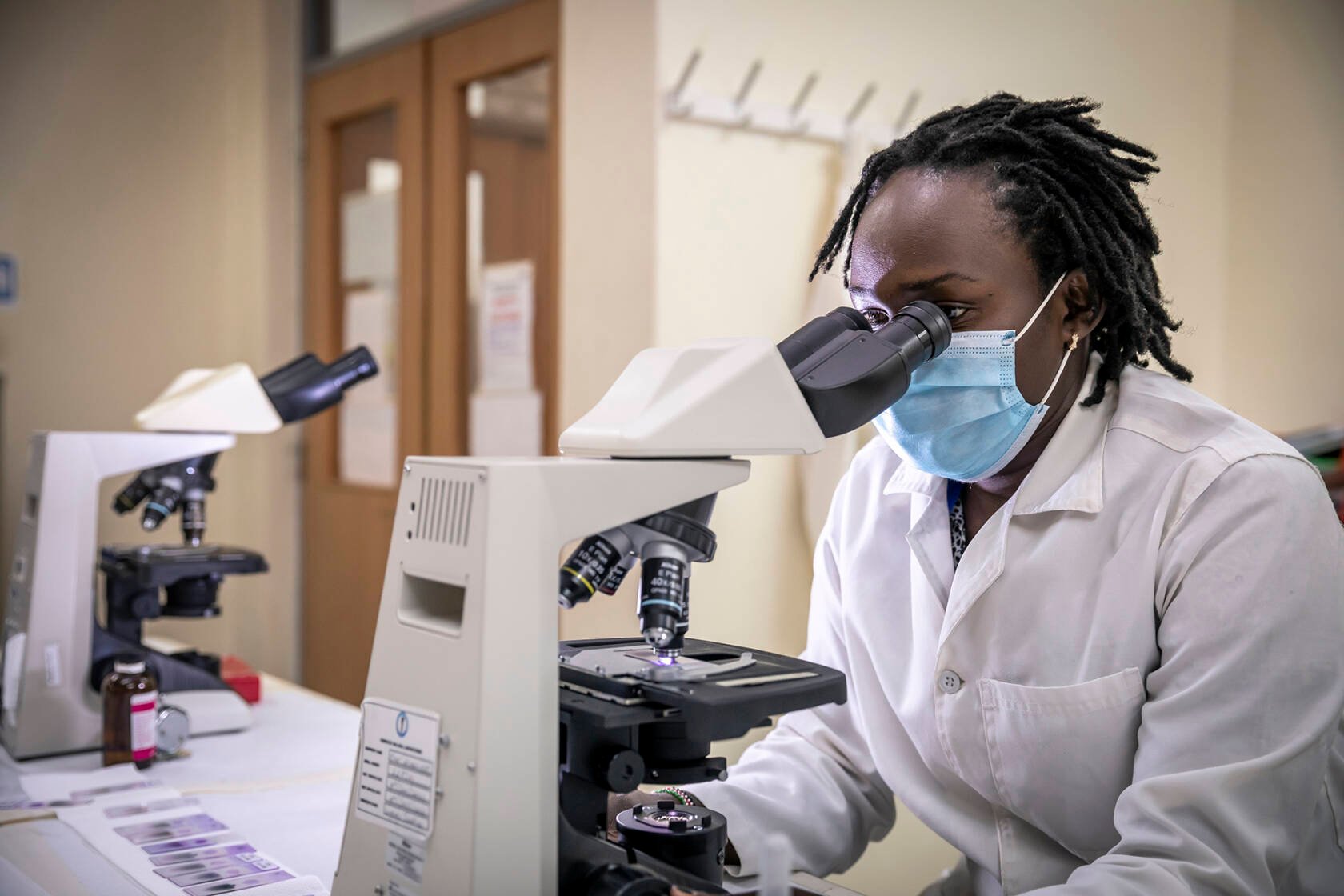
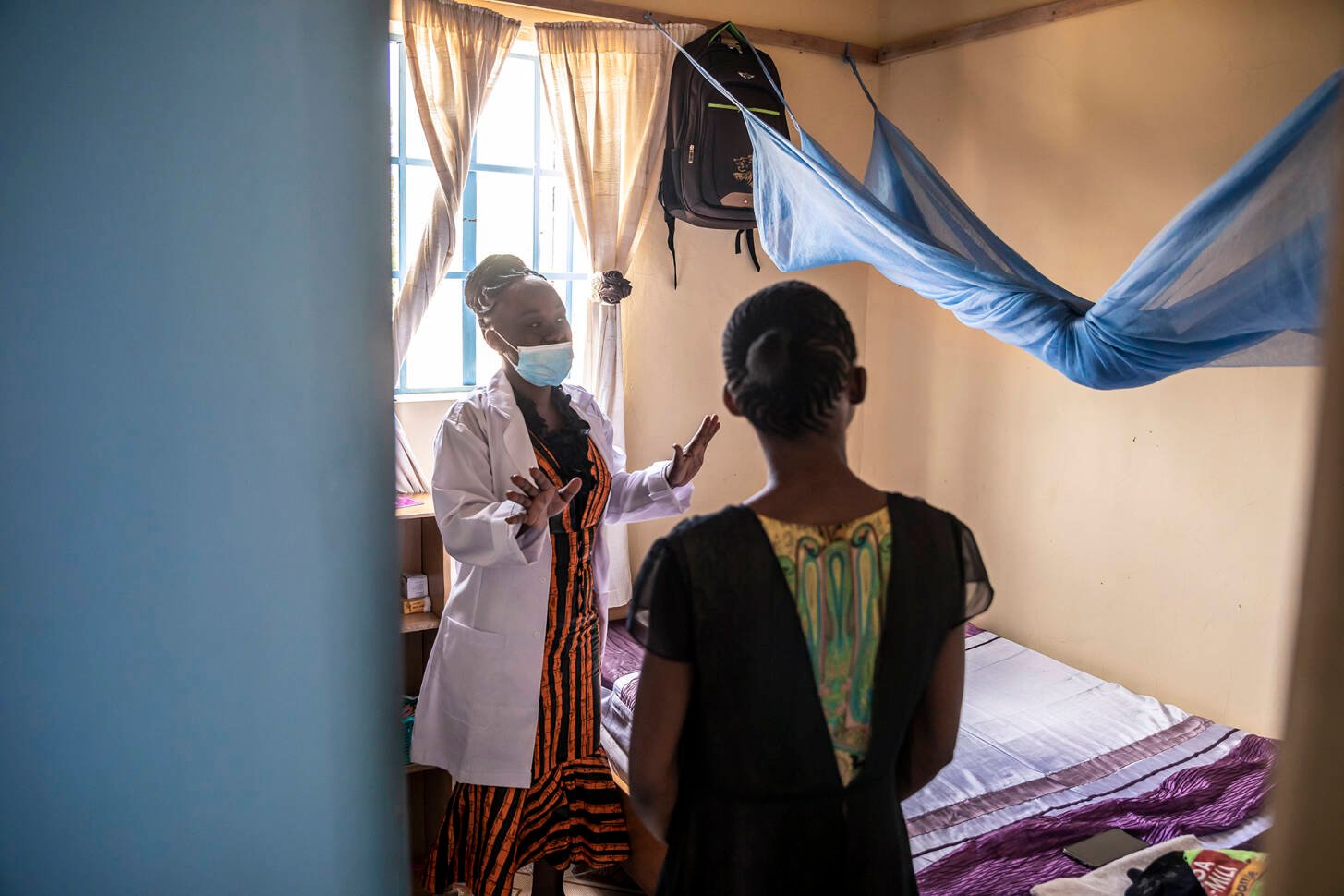
In 2020, EDCTP activated its 'Emergency Funding Mechanism' to rapidly invest in COVID-19 clinical research that would help to manage or prevent the spread of the epidemic in sub-Saharan Africa. One such project is MozCOVID: 'COVID-19 surveillance in rural Mozambique for a prompt and effective response'. The project is conducting a community seroprevalence survey while also aiming to raise awareness among the study population of the risk factors for transmission of COVID-19 and the importance of adherence to the prevention measures adopted by the government of Mozambique.
The project will engage with the Community Advisory Board of the Centre for Health Research of Manhiça (CISM) and local administrative authorities. To gain community awareness and engagement at first, the study team will inform the district and municipal authorities about the objectives and procedures of the study. Messages to leaders and members of the community will explain the importance of notifying CISM of all cases with symptoms suggestive of COVID-19 (including visitors from outside Manhiça). Key messages will be disseminated in health facilities during routine health talks and the community survey. Moreover, community information will be intensified using radio channels, megaphones, and SMS services.
COVID-19 and community engagement
EDCTP Fellows have also been successful in incorporating community engagement activities in their fellowship projects. For example, Dr Primus Che Chi (based at the African Research Collaboration for Health Limited, Kenya) conducts the SERVE-KENYA project: ‘Social, ethical and regulatory implications of conducting a malaria vaccine efficacy trial in a human infection study in Kenya’. The overall aim is to contribute to the development of locally responsive policies ensuring the ethical conduct of malaria vaccine efficacy studies. Specifically, Dr Che Chi aims to explore the social, ethical and regulatory issues relating to controlled human malaria infection trials.
He will perform a series of in-depth deliberative engagements to explore the informed views and values of different community and research stakeholders around core emerging social and ethical issues. Data will be collected from a range of stakeholders in human infection-based trials, including participants, community members, research teams, ethics committees, regulatory authorities and policy makers. The study will deliver a set of recommendations for responsive policies regarding the ethical conduct of human infection-based malaria vaccine trials.
Community engagement
for policy
The EDCTP-funded projects to develop capacities for ethics review and regulatory capacities usually conduct an information meeting with stakeholders including the community. The aim of these meetings is to inform community members on research ethics and the regulatory approval process.
The HATUA-KENYA project ‘Enabling compliance and building capacity and community for clinical research in Kenya’ illustrates such engagement. In collaboration with the Bioethics Society of Kenya, it organised several workshops and events to support sharing of experiences across institutions and discuss ethics issues. The project has held open online ‘bioethics cafes’. A conference on ‘Contemporary Issues in Bioethics’, in March 2020 in Nairobi, Kenya, covered topics such as community engagement, research involving minors, and ethical issues during pandemics.
Community engagement and ethics review
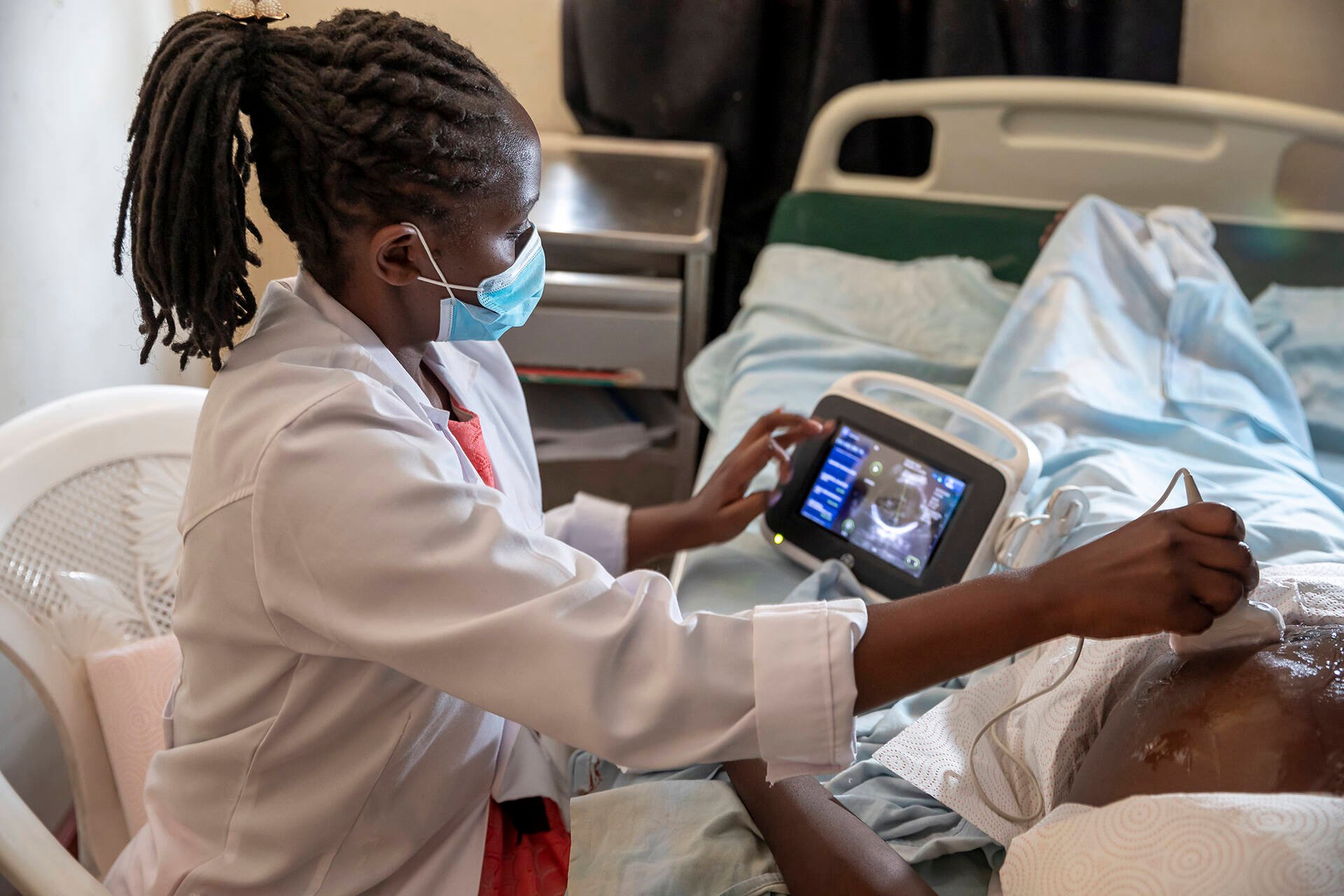
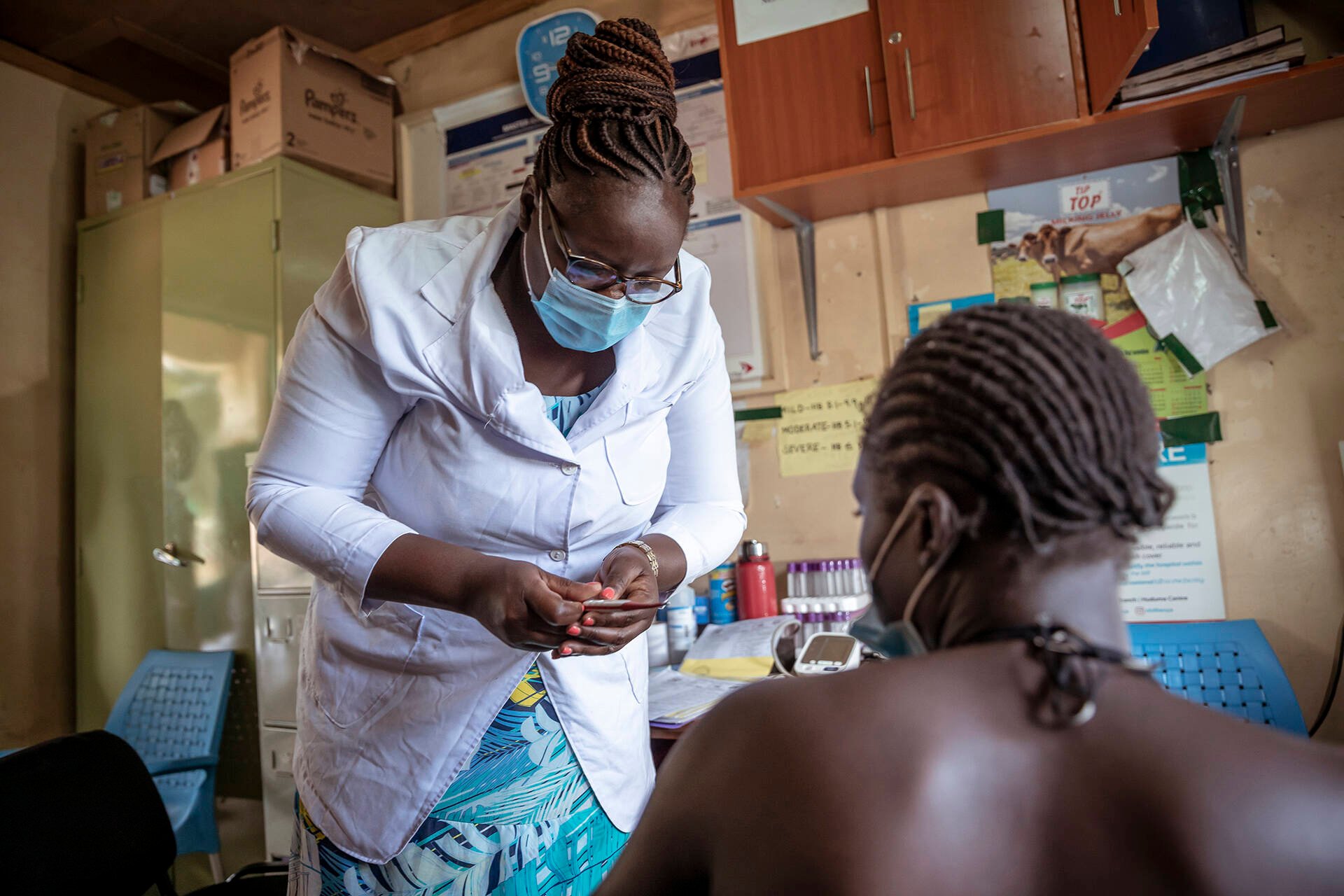
To consolidate its work in community engagement, EDCTP has created a working group involving experts from the General Assembly and the Scientific Advisory Committee. Currently, the working group is reviewing EDCTP-funded research through the lens of community engagement. It will develop recommendations to strengthen EDCTP’s strategy in this area, taking into consideration the orientation of the future third EDCTP programme, i.e. its expected increased focus on late-stage product development, vulnerable populations and emerging and re-emerging infections.
Next steps to further community engagement
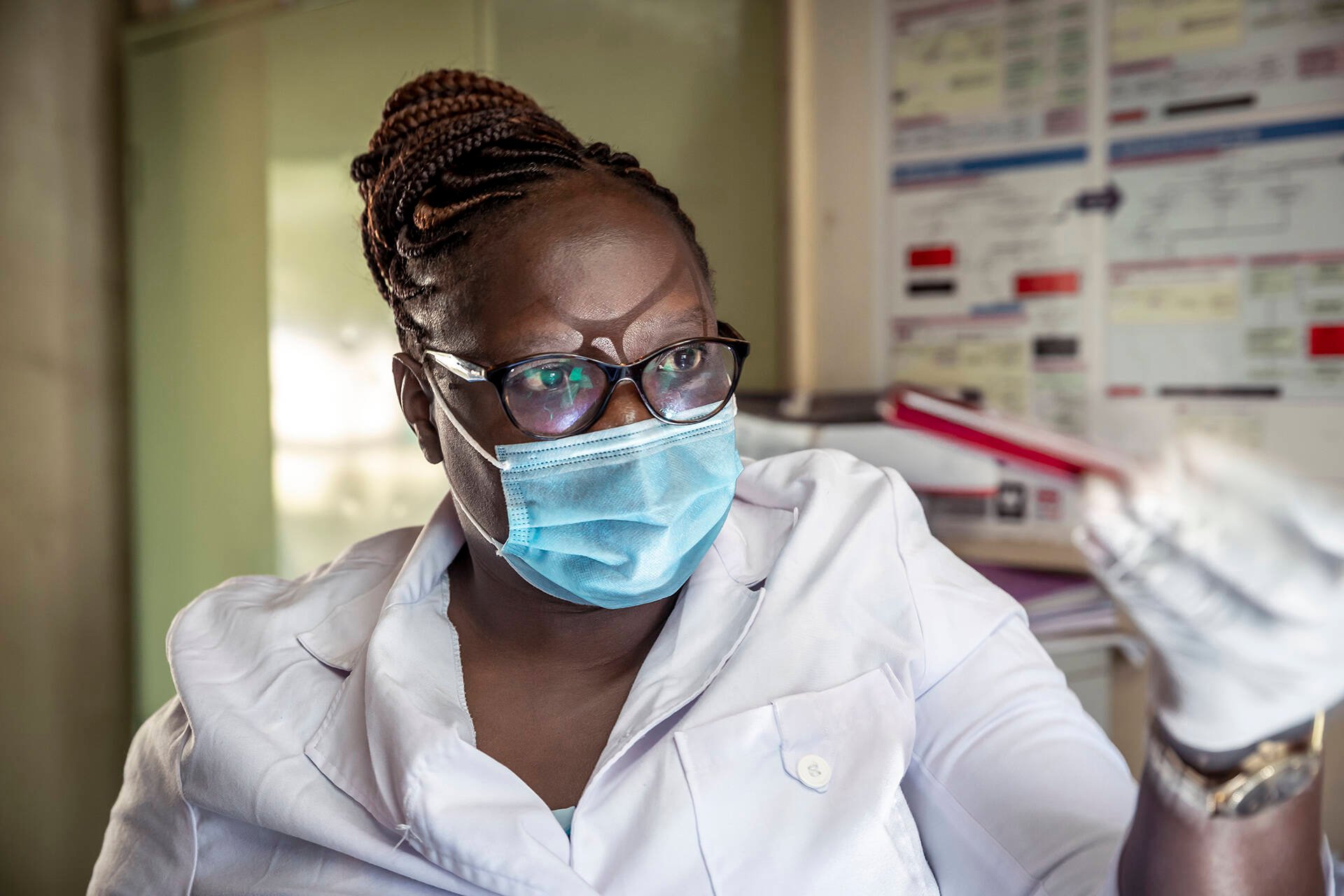
Nuraan Fakier, Erika Gaspari and Ana Lúcia Weinberg
Community
engagement,
a vital concern in
clinical research
Community engagement in clinical research is a dynamic and interactive relationship between researchers, policy-makers and the community. EDCTP encourages this engagement; the projects it funds are often oriented towards building interactive engagement with end-users of research results.
scroll down
Unfortunately, key populations that can most benefit from successful interventions, are often excluded from the clinical product development. EDCTP’s focus on these key populations requires good participatory practices for engagement from study inception right through to results dissemination.
Therefore, EDCTP aims to ensure that effective community engagement is an integral part of the research and capacity development initiatives it funds. This should result in increased awareness and active involvement of community stakeholders in research activities and decision-making. Collaborative partnering with stakeholders is key to building transparent, meaningful, mutually beneficial, and sustained relationships. Respectful relationships addressing the interests of communities underpin scientifically rigorous and ethical trials. This will contribute to reliable and valid data that can inform prevention and treatment strategies for emerging pathogens[1] and poverty-related diseases.
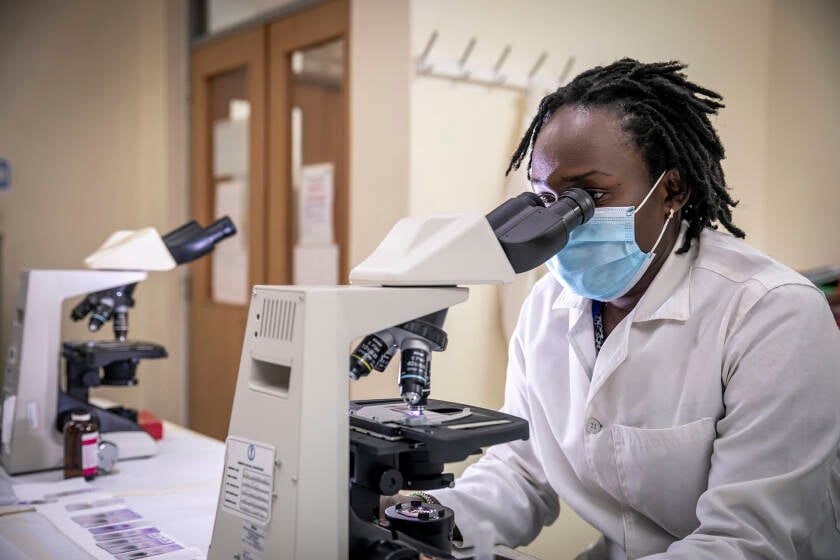
Through its various funding mechanisms, EDCTP has invested in a range of community engagement activities. The international collaborative clinical research projects usually comprise an element of community engagement such as through stakeholder meetings with community representatives to ensure their active involvement throughout the study. Feedback events and other engagement activities are also planned. Many of the clinical research sites where EDCTP-funded trials take place have longstanding engagement with local stakeholders through Community Advisory Boards.
An example of such a collaborative approach between researchers and the community is the EMPIRICAL study: ‘Empirical treatment against cytomegalovirus and tuberculosis in severe pneumonia in HIV-infected infants: a randomised controlled clinical trial’. Particular attention is paid to ensuring that participants understand the purpose and procedures of the clinical trial, as well as involving peer counsellors in post-test counselling to provide support to caregivers regarding their HIV diagnosis and to explain the voluntary nature of research studies.
Collaboration with a Community Advisory Board at each clinical research site is integrated in the study approach, including establishing a local board if one is not already available. The Community Advisory Boards will contribute to increase awareness and develop trust between the research teams and the HIV community. They will aim to dispel any myths and rumours that may have arisen due to a lack of information or an understanding according to local beliefs. To do so, the boards will include key representatives from the community, such as volunteers from activist and patient groups and representatives from (non-)governmental organisations that best represent the infants and families affected by the transmission of HIV-infection. Moreover, local authorities such as traditional chiefs and city representatives will be informed about the trial.
The Community Advisory Boards will be convened before submission of the study protocol to the local Ethics Committee. They will provide guidance and their perspective on the protocol, including what must be addressed during post-test counselling. Moreover, they will provide feedback on the informed consent forms and the study implementation, and assist in the dissemination of research results. Biannual meetings will be held with the boards to ensure a dialogue throughout the trial, to identify, discuss and resolve issues arising. At the end of the study, participants and families will be informed that the trial will be closing. When the trial results are available, an information meeting will take place involving every trial participant and their care givers, the Community Advisory Board and local authorities.
Community engagement in
clinical research
EDCTP was a key partner in the TRUST project funded by the European Union under Horizon 2020 from 2016 to 2018. The project aimed to build an international governance structure involving partners in China, Europe, India, Russia and sub-Saharan Africa. TRUST partners were particularly interested in how vulnerable communities in low-and middle-income countries can become equitably engaged in collaborative research ventures.
According to the TRUST approach, effective community engagement can ensure that all voices are heard and opinions represented in equal measure. To be effective, community engagement in international research requires the development of partnerships with ‘local’ stakeholders (e.g., advocacy groups), involving them in assessing local challenges and research priorities, determining the value of research, planning, conducting and overseeing the research, and integrating the results with local needs where relevant. In a sense, it requires members of the community to become part of the research team and vice versa to create bespoke working environments before, during and after the research.
Community engagement for equity
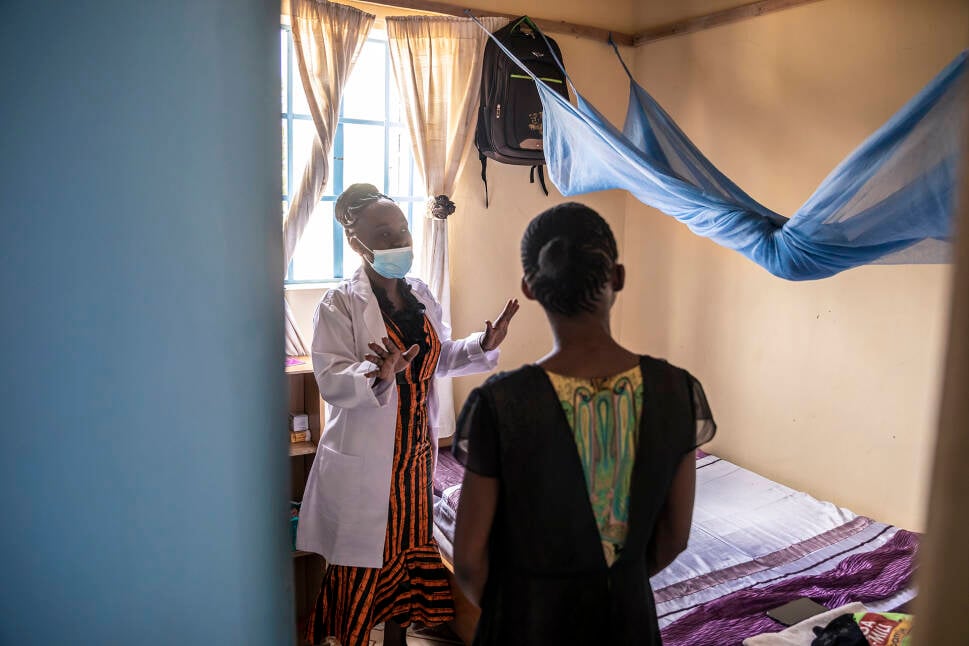
In 2020, EDCTP activated its 'Emergency Funding Mechanism' to rapidly invest in COVID-19 clinical research that would help to manage or prevent the spread of the epidemic in sub-Saharan Africa. One such project is MozCOVID: 'COVID-19 surveillance in rural Mozambique for a prompt and effective response'. The project is conducting a community seroprevalence survey while also aiming to raise awareness among the study population of the risk factors for transmission of COVID-19 and the importance of adherence to the prevention measures adopted by the government of Mozambique.
The project will engage with the Community Advisory Board of the Centre for Health Research of Manhiça (CISM) and local administrative authorities. To gain community awareness and engagement at first, the study team will inform the district and municipal authorities about the objectives and procedures of the study. Messages to leaders and members of the community will explain the importance of notifying CISM of all cases with symptoms suggestive of COVID-19 (including visitors from outside Manhiça). Key messages will be disseminated in health facilities during routine health talks and the community survey. Moreover, community information will be intensified using radio channels, megaphones, and SMS services.
COVID-19 and community engagement
EDCTP Fellows have also been successful in incorporating community engagement activities in their fellowship projects. For example, Dr Primus Che Chi (based at the African Research Collaboration for Health Limited, Kenya) conducts the SERVE-KENYA project: ‘Social, ethical and regulatory implications of conducting a malaria vaccine efficacy trial in a human infection study in Kenya’. The overall aim is to contribute to the development of locally responsive policies ensuring the ethical conduct of malaria vaccine efficacy studies. Specifically, Dr Che Chi aims to explore the social, ethical and regulatory issues relating to controlled human malaria infection trials.
He will perform a series of in-depth deliberative engagements to explore the informed views and values of different community and research stakeholders around core emerging social and ethical issues. Data will be collected from a range of stakeholders in human infection-based trials, including participants, community members, research teams, ethics committees, regulatory authorities and policy makers. The study will deliver a set of recommendations for responsive policies regarding the ethical conduct of human infection-based malaria vaccine trials.
Community engagement
for policy
The EDCTP-funded projects to develop capacities for ethics review and regulatory capacities usually conduct an information meeting with stakeholders including the community. The aim of these meetings is to inform community members on research ethics and the regulatory approval process.
The HATUA-KENYA project ‘Enabling compliance and building capacity and community for clinical research in Kenya’ illustrates such engagement. In collaboration with the Bioethics Society of Kenya, it organised several workshops and events to support sharing of experiences across institutions and discuss ethics issues. The project has held open online ‘bioethics cafes’. A conference on ‘Contemporary Issues in Bioethics’, in March 2020 in Nairobi, Kenya, covered topics such as community engagement, research involving minors, and ethical issues during pandemics.
Community engagement and ethics review
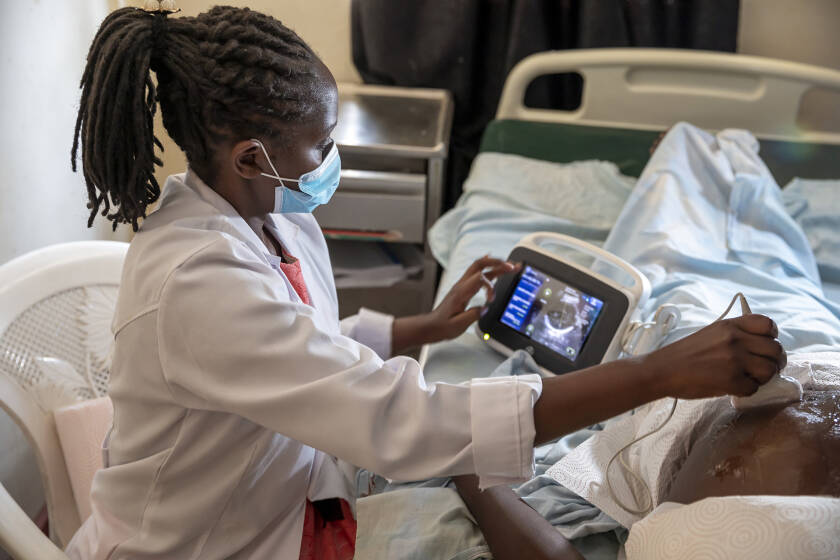
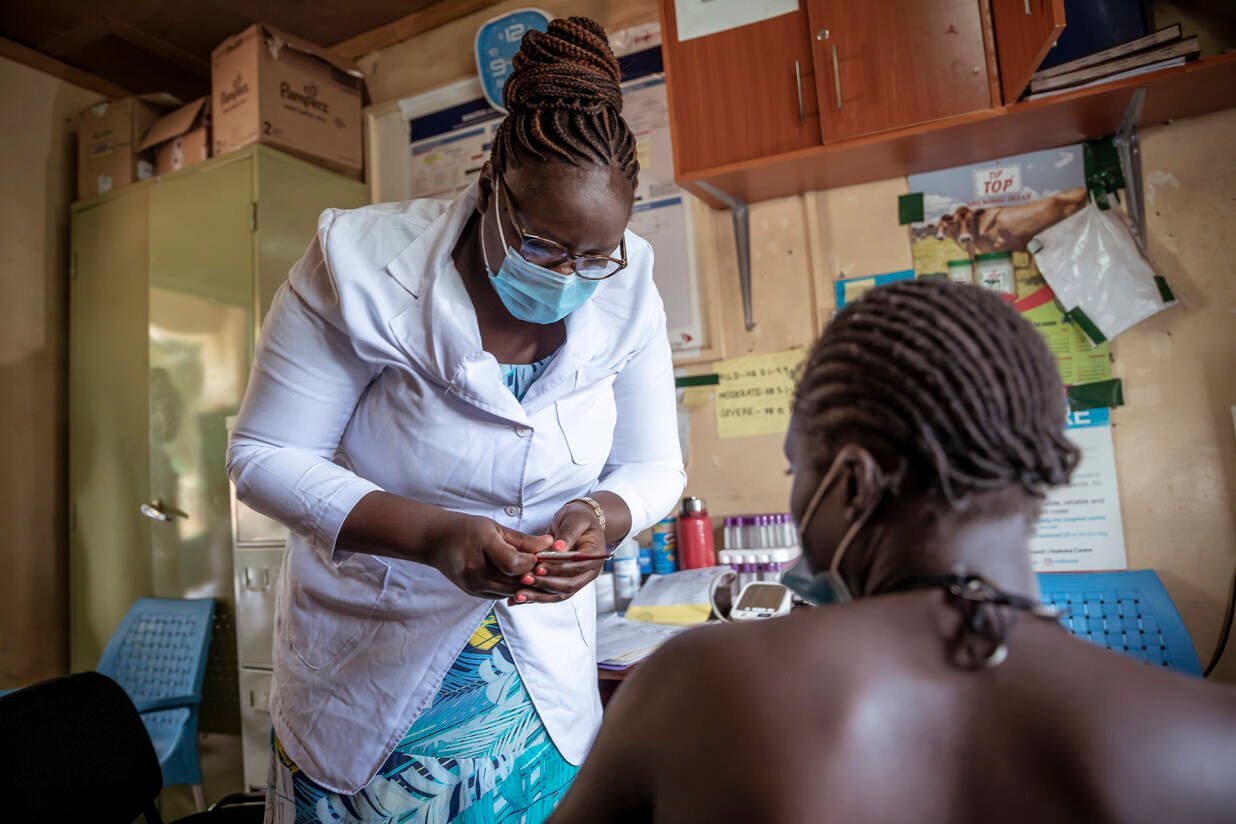

To consolidate its work in community engagement, EDCTP has created a working group involving experts from the General Assembly and the Scientific Advisory Committee. Currently, the working group is reviewing EDCTP-funded research through the lens of community engagement. It will develop recommendations to strengthen EDCTP’s strategy in this area, taking into consideration the orientation of the future third EDCTP programme, i.e. its expected increased focus on late-stage product development, vulnerable populations and emerging and re-emerging infections.
Next steps to further community engagement